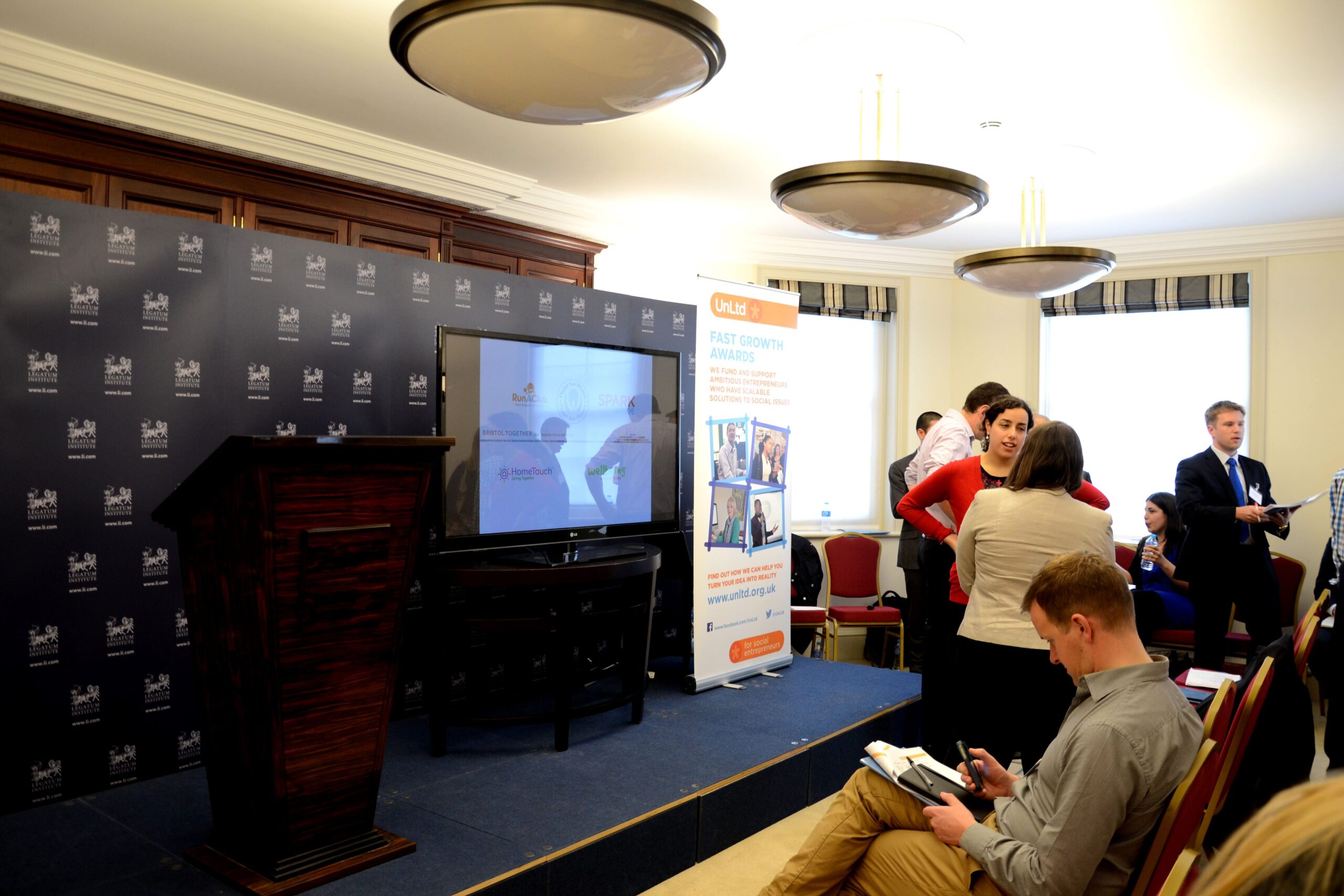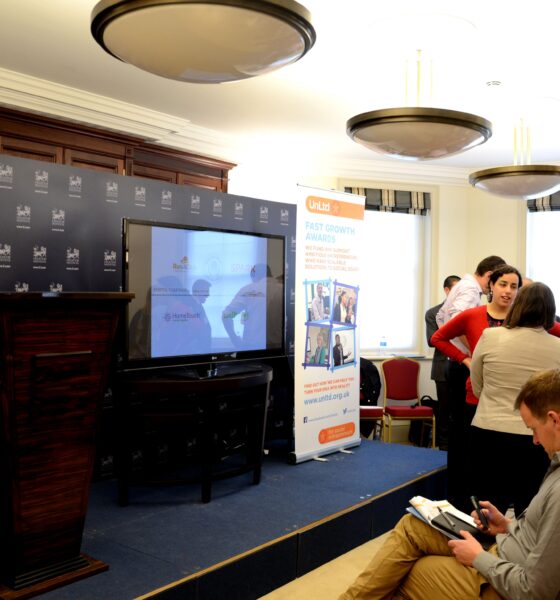

Economy
Fast Growth Awards: social entrepreneurship takes centre stage
A number of innovative entrepreneurs took to the stage on Friday in London to present ideas that could help tackle a range of social issues while also generating growth for investors.
The event, called the Fast Growth Awards, was organised by the charity UnLtd and featured 16 social enterprises, which spoke about their projects to a wide range of delegates – including investors, businesses and entrepreneurs.
After opening words from UnLtd’s CEO Cliff Prior, the first presentation was carried out by Sally Higham from RunAClub, an online platform that assists people across the country who wish to start a community club but need help with the admin side.
James Baderman then presented Fight for Peace, an initiative set up in Rio de Janeiro to engage youths in boxing and martial arts, whilst also delivering crucial education and employment skills, as a way to reduce street violence and crime. The project was brought to London in 2007.
Two social enterprises that work with ex-offenders came next. The first, Spark Inside, works with young people on life coaching, helping them find their own strengths and career paths to avoid reoffending. The second, Bristol-based Together Social Business Group, aims to create full-time employment for ex-offenders by buying empty properties and renovating them for sale.
As executive director of Spark Inside Baillie Aaron explained, the cost of re-offenders for the taxpayer is astonishing. Over one year, the cost of 1,000 ex-offenders that commit a single crime is £16m in the UK. A study on the life coaching model showed a 0% reoffending rate and 50% rate of people actively looking for jobs or education six months after release.
The following area of business covered was health, a sector that recent figures said had witnessed massive growth in the social enterprise space last year. Jamie Wilson, CEO of Home Touch, presented his company, which provides help for the elderly so that they and their families can be more independent. Mark Swift from Wellbeing Enterprises followed him, explaining how his social enterprise takes a more holistic approach by enabling customers and doctors to get consultancy services and management strategies.
Self-management for people with long-term conditions is the focus of Bridges, a company that helps people with neurological and other diseases to take control of their lives, in order to accelerate rehabilitation. Another health-focused company, uMotif Digital Health, has developed a software application that makes patients’ lives easier. Social entrepreneurs focused on health all agreed that the health system is often dysfunctional for patients, and that there was a need for them to easily take control of their lives, which brings about remarkable savings for the society.
Another big focus of social entrepreneurship during the event was education and employability. Five companies and charities presented original and interesting initiatives, which aim at helping postgraduate students in need of funds – such as Student Funder.
Others help pupils who get free school meals to strive for top universities, which is the mission of Brilliant Club. Alex Shapland-Hughes, CEO of Future First, explained that his company looks at the next step, trying to close the career gap between those coming from low-income backgrounds, who often struggle to get top jobs. Meanwhile UpReach works to make it so that social background does not represent a barrier for students on their career. Another company, Year Here, selects brilliant graduates and offers them an annual programme that can turn them into ‘social leaders’.
Elsewhere, the Student Hubs charity works with university students to encourage them to volunteer on social and environmental programmes. Research by the group showed that students who are engaged in volunteering keep it up after university as well, while some even decide to change their career path because of these activities.
The final two entrepreneurs to present their businesses were Michelle Wright from Cause4 and Gavin Francis from Worthstone. The first works with charities, philanthropists and social businesses to develop effective fundraising and communication strategies, while the latter seeks to boost social investment knowledge and understanding among financial advisers.
All the social entrepreneurs presented excellent ideas, which will undoubtedly arouse the curiosity of many investors. Speaking to Blue & Green Tomorrow after the event, UnLtd CEO Cliff Prior said, “Access to market is becoming the biggest challenge for social enterprises.
“There is much more money coming from social investment into the market, but access to market and money go together.
“Social enterprises are just getting good enough, because they stand up in commercial terms.”
Further reading:
Healthcare social enterprises in massive 121% growth in 2013
Investing in the future: smart investment trends
Charity Bank eyes growth after £14.5m social investment from Big Society Capital
Bringing social investment into the mainstream
Government sets out social enterprise support in Social Investment Roadmap






























